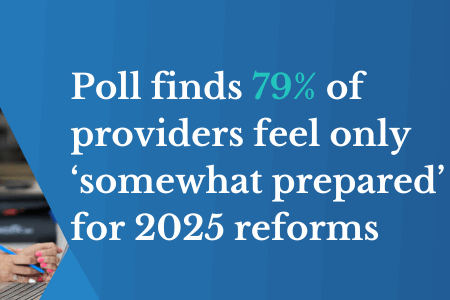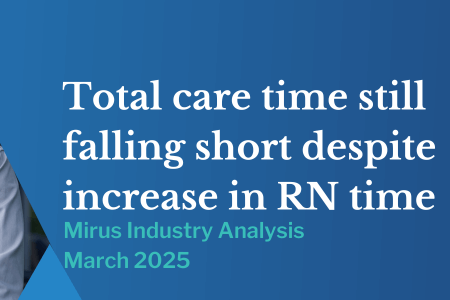Aged care nurses: The duties and qualifications
December 12, 2015 | Assessment and Optimisation

Aged care is an industry of scope and innovation in Australia. There are a variety of career openings in this space depending on your qualifications and interests. If you are looking to upgrade your ACFI skills, please click here for our popular ACFI Advanced Course. If you are looking for an exciting career in Aged Care, please click here for our end-to-end ACFI Coordinator Program that comes with bonus practical experience.)
The population of elderly individuals grows larger every year, both in Australia and across the globe. Japan, for example, is just one country with a well-documented elderly population shift.
While there are no hard and fast rules as to when people should enter aged care facilities, it’s accepted that those over the age of 65 should start to think about their options. Key to the smooth operation of these facilities, and the wider aged care sector, in general, are the well-trained nurses who provide care on a daily basis.
In this article, we’ll explore some of the duties and qualifications of aged care nurses, and share several insights from Samantha Bowen, an advocate for young workers in aged care at The Acorn Network. This is an organisation devoted to helping young aged care workers in the workforce.
A little background
It was early last year that McCrindle Research came forward about the critical demand and supply issues in the aged care sector, especially in care. The organisation pointed to the shifting ratio of workers, outlining the fact that in 2010, there were around 10 working age individuals for every retired couple. In 2050, there will be just five.
In a similar Bupa study, the insurer explained that while it’s certainly necessary to invest in facilities as a way of meeting accommodation demands, it’s equally important to focus on growing the workforce.
“Australian aged care is a dynamic sector. Meeting the needs of our ageing baby boomer population drives innovation and flexibility in the way we care. With the ageing population expected to quadruple over the next 40 years, strategies are needed to ensure steady capacity and growth into the future,” the study noted.
 Nurses bring a necessary set of skills to aged care facilities.
Nurses bring a necessary set of skills to aged care facilities.
What exactly is an aged care nurse?
An aged care nurse is an individual trained specifically to work with elderly people. While they share many skills with medical nurses, they will more often work in nursing homes and residential facilities. This specialised skill set also makes them useful additions to hospitals, and invaluable members of home care service operations.
As they’ll often cover a number of duties outside of those performed by a regular nurse, they have differing duties and qualifications. As aged care continues to grow in Australia, many aged care nurses may also want to start thinking about upskilling further to stand out with potential employers.
(If you are looking for learning and development opportunities around ACFI, please have a look at our end-to-end ACFI Coordinator Course here.)
The duties of an aged care nurse…
Whether in a residential facility or a hospital, an aged care nurse will have a number of duties. They’ll be able to provide help during an emergency, for example if a patient has breathing trouble, as well as the more regular tasks.
These jobs could involve administering medications, observing residents, monitoring diets and reporting to management. Most commonly, documentation at the end of every shift is the most effective way of relaying information.
“Nursing is changing. With such a huge emphasis being placed on clinical leadership and training in the past (which is still very important) there is now a large shift to workplaces being more flexible and person-centric – this includes individualised client services, as well as individualise employee benefits,” Samantha Bowen explained.
“Our nurses are being promoted as managers and they need to have a greater understanding not only of theses clinical/care requirements but also how to communicate and promote their staff so they feel valued, understood, and challenged in the workplace. Which can be a challenge when quality management mentors are in short supply (or unknown to many).”
…and the qualifications
Nursing is no easy field to get involved in; the training is both complex and lengthy, especially if individuals hope to develop more specialised skill sets over time.
Here are three of the most important qualifications required to really provide a high level of care in the industry.
- Bachelor of Nursing: This is a course designed to provide would-be nurses with the underlying theoretical and practical knowledge required to become a registered nurse.
- Diploma in Nursing: Necessary to become an enrolled nurse, this course provides further useful education. A Certificate IV in aged care can also provide the necessary skills.
Of course, with aged care facilities becoming more complex operations in the every near future, there’s no denying that providers will start to seek out staff who can bring more to the table.
“Young nurses want positive workplaces where they are supported, valued, and challenged. This can be through informal and formal mentoring, graduate programmes, or stretch assignments. Young professionals are sick of hearing from disillusioned staff that ‘they are wasting their skills’ or other aged care nursing scepticism that is persuasive in many workplaces (and training organisations/universities),” Samantha Bowen said.
“Getting the right fit is now more important than ever, so ensuring your HR team recruit for culture and not just skill sets is extremely vital. As people leave teams and managers, not because of organisations. Be innovative, listen and understand staff concerns.”
Aged care nurses will only become more important to Australia as the population grows older. For those individuals running aged care facilities, having training programmes in place and excellent working opportunities could prove key in attracting the right nurses.


